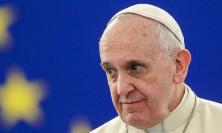Faith-based discussions about ecological issues often revolve around a theme of stewardship, but Pope Francis has taken a different approach in his encyclical, says Henry Longbottom. How does the ecological conversion to which Laudato si’ calls us compare with a movement in secular philosophy which advocates an environmental virtue ethics?
There's a striking absence of ‘stewardship’ language in Pope Francis’ recent encyclical, Laudato si’. The term, which often features heavily in faith-based calls for environmental concern, accounts for just two of approximately 42,000 words.[i] This is no accident. Speaking after the publication of Laudato si’ (henceforth LS), Cardinal Turkson, the President of the Pontifical Council for Justice and Peace who was closely involved in the preparation of the document, highlighted its focus on care for creation rather than on stewardship. Whereas talk of ‘stewardship’ implies a relationship based on duty, he said, the notion of ‘care’ taps into something deeper: ‘when one cares for something it is something one does with passion and love’.[ii]
Put another way, if we are going to undergo the type of ‘ecological conversion’ that LS calls us to embrace, it is going to be driven by a desire to become better, more compassionate people, rather than by a feeling that we ought to do our bit for the environment.
In philosophical terms, what is happening here is a framing of Catholic teaching on ecology within a virtue ethics paradigm. Whereas stewardship models are more likely to look to duty-based ethics or utilitarian approaches, which focus on achieving desirable outcomes, virtue ethics is primarily concerned with the role of a person’s character in bringing about the ‘goal’ of flourishing. A person lives life well when he or she cultivates attitudes, dispositions and character traits – collectively referred to as ‘virtues’ – that contribute to his or her flourishing as a person.
LS's emphasis on the role of ecological virtue is particularly interesting because there's been a similar movement within secular philosophical circles in recent times. Until a decade or so ago, environmental ethics had been dominated by duty-based or results-driven approaches. This is understandable given the legislative and regulatory framework within which environmental issues are typically dealt. When an oil company negligently causes widespread pollution, we frame its behaviour as unethical in terms of its failure to discharge legal and social duties. An appeal to the oil company’s failure to demonstrate the virtue of love for nature would not be very effective! But what about the formulation of an environmental ethics to regulate, or rather motivate individual citizens? Or communities? This is where a purely duty-based or results-driven approaches have floundered.
An Inconvenient Truth
I cast my mind back to 2006 when the world was captivated by Al Gore’s film An Inconvenient Truth. Using the ‘hockey stick’ graph developed by the climatologist Michael Mann, Gore powerfully explained the alarming rise in emissions and temperatures in recent decades. The film was a triumph. Suddenly, the debate moved into the mainstream and action on climate change seemed to be just round the corner. The corporate law firm where I was working at the time even held a screening (attendance compulsory) of An Inconvenient Truth, after which the Managing Partner observed that the climate crisis could be avoided if businesses and politicians acted quickly, and that we lawyers could also win some new clients in the emerging ‘climate change sector’ along the way. There was a lot of similar rhetoric elsewhere about a win-win situation for business and environment alike.
Alas, the mid 00s' optimism around environmental action was quashed by global recession, and then the spectacular failure of the Copenhagen climate talks. And yet the source of the failure was deeper than an economic downturn and a failure of politicians to get their act together. The heart of the problem was a lack of common ownership of the issue. What was the real motivation for action? Let's face it, no one is ever really converted by graphs or pie charts. PowerPoint presentations, even those as convincing as Al Gore's, are never going to spur us into radical, life-changing action.
Analysing the shortcomings of the Inconvenient Truth era, Naomi Klein, in her book This Changes Everything, focuses on the underlying attitude that there was a technological and political solution to this problem, which those ‘in charge’ could just sort out. Unlike other social transformations – the civil rights movement, for example – there was no large mobilisation of ordinary folk. There was a blanket refusal to confront the need for a wholesale economic and cultural rethink.
Klein's critique in many ways mirrors LS's criticism of what it calls the ‘technocratic paradigm’ – namely, the false hope that ecological problems can be solved by throwing money at them, with just a few tweaks to the economic system. Klein’s call for an ‘alternative worldview’ is also echoed in LS, which says that real change requires ‘rethinking processes in their entirety’ and a questioning of the ‘logic which underlies present-day culture’.[iii]
A philosophical question
Meaningful environmental action has so far failed to materialise because it has not been underpinned by the kind of ‘alternative worldview’ that Klein speaks of, or by what LS terms ‘a distinctive way of looking at things’ (§111) – in short, ecological conversion. This is a profoundly existential and philosophical question.
Where the Church and secular thinkers seem to be converging is in their view that virtue ethics is well placed to provide the philosophical infrastructure to enable the transition towards a more effective response to the ecological crisis. A leading proponent of the new ‘environmental virtue ethics’ movement within secular philosophy is the American philosopher Ronald Sandler. Sandler says that any attempts to improve society, including our interaction with the non-human world, ‘will amount to mere moonshine if its citizens lack the character and commitment to make them work.’[iv]
But what type of character traits are required if our environmental actions are to amount to more than ‘mere moonshine’? In other words, what counts as an ‘environmental virtue’? Whilst LS states that a healthy relationship with the environment leads to the cultivation of ‘ecological virtues’ (LS, §88), it does not elaborate on what these virtues might look like. It's certainly an area for further discernment, and I think that recent discussion among philosophers might assist this discernment.
What is an environmental virtue?
Secular philosophers tend to follow one of three basic approaches when it comes to characterising an environmental virtue.
The first approach is to focus on individual personalities who somehow encapsulate what it means to be an environmentally virtuous person. This draws on Aristotle’s use of figures to exemplify virtues – for example, his definition of courage as a warrior facing death in battle. The Colorado State University Professor Philip Cafaro takes this line in his study of American ecological heroes such as Rachel Carson and Henry Thoreau.[v] The problem with this approach is that there is often little agreement about who is truly virtuous. For example, some may argue that Thoreau’s flight from modernity in search of a solitary life in the woods was primarily driven by a selfish motive ‘to find himself’. Wilderness for him was a kind of tonic, a medication to guarantee his health. Likewise, exemplars are often not well-rounded. Ecological campaigners like Carson may exhibit plenty of courage but arguably neglect other virtues such as temperance. Another concern might be that the lives of any paradigms of virtue that we might identify are a far cry from those of ordinary people. A Catholic ecological justice heroine of mine is Sr Dorothy Stang SND, the ‘sister of the Amazon’ who was murdered in her efforts to defend poor communities in Brazil. Whilst inspiring, her life and context was truly ‘extra’ ordinary, which might make it difficult to translate her actions in extreme circumstances into a more routine situation.
A second approach is to re-use existing virtues and extend their meaning to apply to ecological behaviour. Proponents of this ‘extensionist’ approach often focus on the virtue of humility. Humility will help us overcome an assumption of superiority over non-human entities. It will also help us deal with the effects of environmental change, since our capacity to predict and control natural processes will be gradually reduced as the climate becomes increasingly unpredictable. There's certainly a convergence between these secular discussions and LS, which talks about the need for humility in order to avoid becoming ‘enthralled with the possibility of limitless mastery over everything’a (LS, §163). Another existing category of virtue developed by some philosophers is fidelity, as manifested in friendship. A striking case for this approach is put forward by the New York University philosopher Dale Jamieson. Laying aside his usual utilitarian position, Jamieson believes that the language of virtue is more appropriate for environmental ethics than the impersonal language of cost-benefit analysis and self-interest. He proposes that we see the natural world as ‘a partner with whom to share our life’. [vi] Our relationship to the environment then becomes analogous to the way we think of friendship, transcending narrow economic grounds; a solid friendship is never built around the notion of ‘what this person can do for me’. Jamieson's approach ties in with the way in which LS draws on the Franciscan tradition of fraternal love with the natural world, a love that is gratuitous and ‘inspires us to love and accept the wind, the sun and the clouds, even though we cannot control them’ (LS, §228).
At this point however, some analytic philosophers note that a language of ‘environmental friendship’ can only be pushed so far, since actual friendship must entail mutual concern for the welfare of the other. Non-human entities cannot reciprocate the virtue of fidelity and friendship: I cannot ever feel real compassion for a rare breed of frog facing extinction, since the frog is not capable of showing me compassion. Similarly, the land or an ecosystem cannot be harmed in a way a human is harmed because these natural entities do not have a ‘welfare’ in the sense that they recognise they are better or worse off.
To overcome these problems of reciprocity, some virtue philosophers advance a third approach, which is to devise a totally new, distinctively environmental virtue. Sandler, for example, formulates a virtue of ‘communion with nature’. This incorporates existing virtues of awe, humility and friendship, but also involves a commitment to all natural entities as they are in themselves.[vii] Thus we arrive at a notion of the intrinsic value of all beings, a concept that LS emphasises repeatedly. The focus shifts away from an ethics based on reciprocity towards a respect for all beings, because each possesses a striving to flourish according to its own nature. For Sandler, practising the virtue of communion with nature respects such striving, and is a constitutive part of human flourishing.
‘Everything is related’
The convergence between a Catholic and purely secular philosophy of environmental virtue ethics certainly has limits. For instance, most secular philosophers such as Sandler adhere to a scientific naturalist position, which maintains that empirical science is the single guide to a correct understanding of the world. They would therefore reject the existence of any overarching, what they would regard as supernatural ‘ends of nature’. But it strikes me that with its talk of the virtues of humility, friendship and communion with nature, secular virtue philosophy is nevertheless heading in the direction of an idea of there being a ‘meaningful life’. Likewise it is edging closer towards the notion that there is indeed a universal ‘overall good’, even if this is not expressed in theistic terms.
There are also ways in which a theistic approach to environmental virtue ethics is on a firmer footing than its purely secular counterpart – for example, in the way it deals with the perceived anthropocentric bias of virtue philosophy. Some environmental philosophers argue that virtue ethics actually works against environmental protection because it is inescapably human-centred. One such argument comes from Templeton Prize-winning philosopher, Holmes Rolston III. He holds that in ethical terms, the goodness of (for instance) preserving a rare species does not derive from its benefit to the human in making them a better person. Rather it is a good because it benefits a value ‘out there’, completely external to human beings.[viii] Whereas secular virtue philosophers might struggle to articulate how a value might exist independently of humans, theists have less of a problem because in their worldview, there is no dichotomy between a human value and a value ‘out there’ since all of divine creation is interconnected. As LS puts it so beautifully:
Everything is related, and we human beings are united as brothers and sisters on a wonderful pilgrimage, woven together by the love God has for each of his creatures and which unites us in fond affection with brother sun, sister moon, brother river and mother earth. (LS, §92)
Converging with philosophers of good will
This convergence of secular environmental approaches with the notion of ecological conversion now enshrined into Catholic Social Teaching by Laudato si’, is an interesting development. Might it contain the potential for greater dialogue between the Church and ‘philosophers of good will’ in their common quest to understand what it means to be ecologically virtuous? I hope so.
Henry Longbottom previously worked as an environmental lawyer.
[i] Pope Francis, Laudato si’ (2015), §116 & §236.
[ii] Naomi Klein, ‘A Radical Vatican’, The New Yorker (10 July 2015).
[iii] Laudato si’ §197; cf. Naomi Klein, This Changes Everything (London: Simon & Schuster, 2014), p. 462.
[iv] Ronald L. Sandler, Character and Environment: A Virtue-Orientated Approach to Environmental Ethics (New York: Columbia University Press, 2009), p.2.
[v] Philip Cafaro, ‘Thoreau, Leopold, and Carson: Toward an Environmental Virtue Ethics’, Environmental Ethics, 23 (2001).
[vi] Dale Jamieson, ‘Ethics, Public Policy, and Global Warming’, in Ethical Adaptation to Climate Change: Human Virtues of the Future, ed. by A. Thompson and J. Bendik-Keymer (Cambridge, Mass: MIT Press, 2012), p. 192.
[vii] Sandler, p. 50.
[viii] Holmes Rolston III, ‘Environmental Virtue Ethics: Half the Truth but Dangerous as a Whole’, in Environmental Virtue Ethics, ed. by Ronald Sandler and Philip Cafaro (Lanham: Rowman & Littlefield Publishers, 2005).






